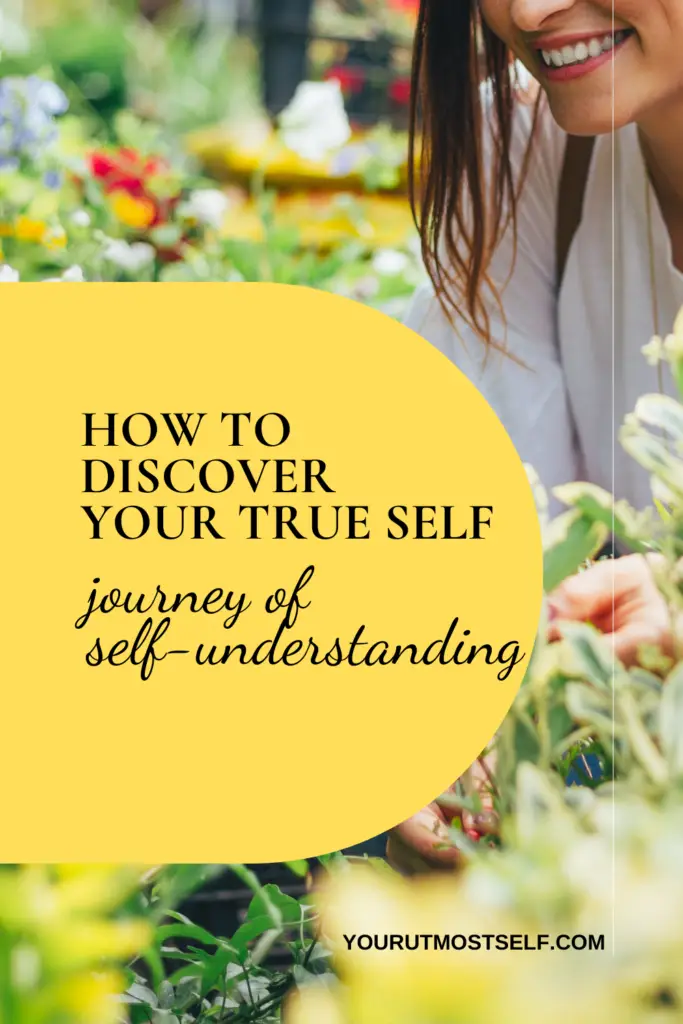Feeling the weight of unmet expectations, do you think you need a do-over, a fresh start? Perhaps a chance to hit the reset button and start anew?
Are you disappointed again in what you have achieved or where you are? Do you wish for the strength and perseverance of those who effortlessly reach their goals?
Do you ever glance at your life and quietly think: “This isn’t how I thought it would look.”
Maybe you’re feeling the ache of another year gone by—one filled with big intentions, small wins, and far too many things that didn’t go how you hoped. But remember, you’ve also had some victories, no matter how small. It’s a hard thing to admit, especially when you’ve tried. You’ve planned. You’ve shown up. And still… You feel stuck. But that’s okay. It’s all part of the journey to a fresh start.
Disappointment has a way of creeping in quietly, dressed as reflection. But under the surface, it pokes at our worth, effort, and unmet expectations. And if you’re here wondering if it’s too late to change course or start anew, let me assure you it’s not. It’s never too late to reassess your goals and make meaningful changes.
The Universal Challenge to Start Anew
You may have asked the same haunting question I have: Is it me? The goal? Or the expectation?
Each year, I set out with clear hopes—new milestones, new energy, a fresh version of me ready to take shape. But often, when I stop to take inventory, I realize something’s still missing. Some goals are only half-formed.
Others sit untouched, collecting dust. And some? They’re buried beneath the beautiful chaos of everyday life. In simpler terms, I set out with big dreams, but life gets in the way and I don’t always achieve what I set out to do.
Yet, upon introspection, I’m met with the stark realization that many of my goals remain unfulfilled, the distance between aspiration and attainment seemingly insurmountable. In the face of this, doubt begins to creep in, and negative thoughts threaten to overshadow any sense of progress.
Cue the inner critic: You should’ve tried harder. You should’ve known better. You should be further along by now.
Sound familiar?
According to research by the University of Scranton, approximately 80% of New Year’s resolutions fail by February, suggesting that this struggle to maintain momentum toward our goals is far from uncommon. This statistic reveals just how universal the need to start anew truly is—it’s part of the human experience, and you are not alone in this.
That Familiar Feeling of Falling Short And Needing to Start Anew
This is where so many of us live—somewhere between ambition and exhaustion, between dreaming big and wondering if we’re the problem. But before we internalize the failure, we have to pause and ask the deeper question:
Is it me? The goal? Or the expectation?
Because maybe the problem isn’t that you didn’t follow through.
The problem may be that the goal was never yours to begin with. Or the timeline was unrealistic. Or the season of life you’re in simply wasn’t built to carry that vision yet.
Isn’t this a familiar narrative when we fall short of our own expectations? We chastise ourselves, internalizing perceived shortcomings and allowing self-criticism to dictate our inner dialogue.
It would be all too easy to surrender to the weight of frustration and self-pity, blaming ourselves for perceived failures and lost time.
But dwelling on past missteps only perpetuates feelings of inadequacy and despair. Instead, I challenge myself and implore you to do the same: Is it Me? The Goal? Or The Expectation? Be kind to yourself in this process, self-criticism only hinders your progress.
The Courage to Start Anew
Starting over doesn’t mean you’re back at zero—it means you’re moving forward with experience, deeper clarity, and a whole lot more honesty and grace for yourself than you had before.
But how do you know when it’s really time to begin again?
Ask yourself:
- Was this plan essential, or just expected?
- Did I set this goal for myself, or for someone else?
- Does this still fit who I’m becoming?
- Is this the right time, or just the right idea?
When we stop performing for other people’s visions and get radically honest about our own, we create the freedom to start anew—not as a way of giving up, but as a way of aligning deeper.
Now is the moment to begin your journey of self-discovery—to shed the weight of doubt and open your heart to the possibility of a brighter, more aligned tomorrow.
Let’s give ourselves permission to dream again. To reimagine what’s possible. To chart a new course forward with intention and hope. Because every transformation starts with one powerful choice: the decision to start anew.
In fact, research supports this. A study published in the Journal of Clinical Psychology found that individuals who set clear, specific resolutions are 10 times more likely to achieve their goals than those who don’t. That’s the power of intentionality—turning vague hopes into meaningful, lasting change. It’s a strong reminder that when you choose to start anew, setting clear intentions isn’t just helpful—it’s essential.
Ask Yourself: Is It Me? The Goal? Or The Expectation?
Another year has passed—another candle on the cake—and with it comes a moment of reflection. Not just on what’s happened, but on what I thought would happen.
A year ago, I laid out a vision with hope in my heart. I saw who I wanted to become, what I hoped would shift, and the areas of my life I longed to grow. But if I’m honest, where I am today doesn’t quite line up with what I had imagined. In fact, it feels pretty far off.
And that’s where the self-talk kicks in.
The doubts. The comparisons. The quiet undercurrent of disappointment that whispers, “You should’ve done more.”
It’s easy to go down that road—to internalize the unmet goals as personal failures, as if they say something about who we are rather than simply what didn’t work. We beat ourselves up, convinced the problem is us. Sound familiar?
But here’s the truth: just because the outcome didn’t match the vision doesn’t mean you failed.
Instead of spiraling into guilt or shame, I’ve learned to pause and ask a better question—one I want to offer you today:
Was it me? The goal? Or the expectation?
Maybe the goal wasn’t realistic for the season I was in. Perhaps the expectation was rooted in someone else’s voice, not mine. It could be I was never meant to strive harder, but to start differently.
There’s no use sitting in regret—it keeps you stuck in yesterday. What we need is grace, clarity, and courage to move forward in a new way. So let’s trade the shame for self-compassion and turn inward with curiosity instead of criticism.
Now’s the time to step into a fresh season of self-discovery. To get honest about what we really want. To dream again—this time with a deeper understanding of who we are and what actually matters.
You don’t have to start over. You just need to start aligned.
Start Anew: Assessing the Need
Do you need to start anew? To answer this question, we must delve deeper and ask ourselves a series of introspective inquiries.
“Are my plans truly as necessary as I once believed?”
Maybe, in the excitement of setting those goals, I gave them more weight than they deserved. And now, it’s time to step back and ask myself—am I holding too tightly to something that was never meant to define me?
When a goal goes unmet, it’s worth asking: was it truly essential, or did it simply feel urgent in the moment?
Life doesn’t pause for our plans. It throws curveballs, reshapes our priorities, and invites us to regularly reassess what actually matters. Just because something hasn’t happened yet doesn’t mean we’ve failed—it might just mean it’s no longer the right focus for right now.
In the craziness of our daily tasks, it’s all too easy for our dreams to get buried beneath the weight of what has to get done. I’ve felt that tension firsthand, especially when launching something new. Despite my best intentions and a clear plan, certain goals—like making time for exercise—consistently slipped to the bottom of the list, overshadowed by what felt more urgent in the moment.
And that’s the reality many of us face: it’s not that we don’t care about our aspirations—it’s that life can be loud, fast, and relentless.
But it’s okay to sideline specific pursuits momentarily for the sake of overarching priorities. We can’t expect ourselves to accomplish everything in a single day.
The real key is learning to discern what actually matters in the big picture of our lives—and then aligning our actions to reflect that truth. When we stay focused on the endgame and intentionally prioritize the parts of life that carry real meaning, we create space for a journey that feels purposeful, not just productive. It’s not about doing more—it’s about doing what matters most.
Research from the American Psychological Association suggests that changing too many habits at once significantly reduces our chances of success. Focusing on one or two meaningful changes at a time increases the likelihood of lasting transformation by 80%, reinforcing the importance of prioritization when you start anew.
Why Some Goals Never Stick When You Try to Start Anew
Sometimes, our goals are performative.
We see someone else’s highlight reel and adopt their dream as our own. We chase a version of success that looks shiny but lacks substance. We’re conditioned to believe that more = better, faster = worthier, and busier = successful.
But those borrowed goals? They rarely stick. Not because we’re lazy, but because they’re hollow.
And other times, our goals are genuinely good, but out of sync with our current season.
You might want to take a photography course, hike a mountain, or train for a half marathon. But suppose you’re managing a full-time job, teenagers, caregiving, or grief. In that case, no amount of motivation will make that dream sustainable right now. And that doesn’t mean you’re failing. It means you’re human.
A goal without timing, margin, or meaning behind it is like a seed without soil. You don’t need a new dream—you just need a new strategy.
A study published in the European Journal of Social Psychology found that it takes an average of 66 days for a new behavior to become automatic, with a range spanning anywhere from 18 to 254 days. That’s a big difference. And it highlights something important: one-size-fits-all strategies rarely work. When you’re starting fresh, what you need isn’t a rigid formula—it’s a personalized approach that honors your unique pace, priorities, and season of life.
Start Anew: Understanding the Motivation Behind Your Goals
Sometimes, we make a plan or a goal because it seems like the “thing to do.” We can hear someone make a goal and think it sounds like a great one. We, too, wish we could achieve it, so we decided to put it on our list.
When we decide upon a goal, we must ensure that they are our goal and not others. They may sound like a good goal, seem fun and exciting, or an impressive goal to say we accomplished. But they aren’t our goals. They aren’t leading us to something significant for us and what we desire for ourselves or our lives.
We should think about the motivation behind our goal. We can create a long list of things to accomplish without a strong enough reason behind them, leading to an unachieved goal and an easy way to disappoint ourselves.
Sometimes, we set a goal because we want to achieve it eventually in the distant vision of our life; however, it just doesn’t fit into the here and now.
We may want to get more fit, learn another language, or take a photography class because it fits our vision of our future life. We may wish to hike the Rocky Mountains, visit Italy, and capture higher-quality photos of our favorite moments.
However, suppose we are juggling a new job, four boys, or a current chapter of our life that doesn’t allow time for that particular goal, meaning it would be very low on our list of priorities. In that case, we will not give it the time and attention it takes to accomplish it.
That is okay! Now is not the time, but that does not mean there won’t be time.
If we are not allowing ourselves realistic timeframes for accomplishing our goal, we are setting ourselves up for failure and will lack confidence in our ability.
A survey by Statista revealed that 44% of people abandon their goals because they were too ambitious or unrealistic. This reinforces the importance of setting goals that align with your true motivations and current life circumstances when you start anew.
Start Anew by Reclaiming Your Motivation
Before you write off the goal, dig up the “why.”
Why did it matter in the first place? Why now? What would achieving it really give you?
Sometimes, the motivation fades not because the goal was wrong, but because we never clearly defined what we were chasing.
Getting fit sounded like the goal… but what we truly longed for was to feel confident in our own skin again.
Making more money seemed important… but at the core, it was about freedom, stability, and peace of mind.
Writing the book felt like the dream… but underneath, it was the deep desire for our voice to be heard and to make an impact.
The deeper your why, the stronger your follow-through. But if your “why” can’t carry the weight of real life, your goal won’t either.
Research published in the Journal of Personality and Social Psychology found that individuals who tie their goals to personal values show 35% higher persistence than those chasing goals for external reasons. That’s a powerful reminder: when your motivation is rooted in who you are—not just what you think you should do—you’re far more likely to stay the course. Authentic alignment isn’t just inspiring—it’s essential when you decide to start anew.
Start Anew: Creating a Good Goal
Whatever we decide to accomplish, we need to ensure it is clear-cut. If we do, we will know what we are trying to achieve. A goal is a small part of a big-picture plan; if we look at the entire picture, we may not see the intricate pieces needed to create it. We must narrow our focus and become specific.
For our goal to be good, we must set markers that prove our progress. We may think we are moving forward, but without a way to gauge ourselves, we may move laterally instead or even away from our desired location.
Align Your Goals With Your Season of Life
As mentioned earlier, our goal must fit our current ability to focus on it. We must look at our current schedule and what is on our calendar, and decide if we can create room for our goal.
Do we have the ability to give it the focus it will require? Is our goal obtainable at this time in our life? If it is more important than something else on our calendar, the new plan becomes the priority for that space.
Our goal must also be given the proper time. Sometimes, a plan only needs a few months, a year, or several years.
If we do not set realistic timeframes for accomplishing our goal, we will set ourselves up for failure and lose confidence in our ability.
We may want to lose 75 pounds in 3 months for our sister’s wedding, but realistically, we would not achieve that. We may want to save $100,000 in a year, but have an income of $75,000.
The best goals are the goals we achieve. We can dream, plan, and set goals for many things that we genuinely want to achieve and fit into our lives, but we must be allowed the proper amount of time to make them.
Once you ask and answer the questions, you will determine if you want to start anew.
According to data from the Harvard Business Review, people who wrote down their goals were 42% more likely to achieve them compared to those who didn’t. Even more compelling—those who shared their goals with someone and provided weekly updates saw a 76% success rate. That’s not just a small boost; it’s a major shift. This highlights a vital truth: when you start anew, clarity and accountability aren’t just helpful—they’re game changers.
Start Anew: The Power of Self-Reflection
I asked myself the questions when I decided I could no longer wallow in my self-pity. I only give myself 10 minutes to feel sorry for myself.
Were my plans as necessary as I thought they were? Was my why strong enough? Could I achieve it? And was it a good goal?
However, after looking at some of my goals, I concluded that not all of my goals met the proper goal requirements. Some didn’t fit into my current chapter of life. Some I didn’t care enough about, and some I didn’t want to attain anymore.
There were a couple I didn’t want to erase or put on a future list; I wanted to start anew.
The great thing about asking yourself the right questions is that it gives you joy.
I felt as if I had a new beginning. I had given myself grace. Now, instead of beating myself up, I could start anew. I saw the paths that led me astray and how much they meant to me, and I could develop a better plan for achieving them.
A study published in Psychological Science found that self-reflection increases goal achievement by 25% and reduces stress levels by almost 20%. This demonstrates how the process of honest evaluation creates the perfect foundation when you need to start anew.
Start Anew with SMART Goal Setting
If you’ve ever set a goal like “get my life together” or “finally be happy,” you’re not alone. But here’s the truth: vague goals create vague results. You can’t measure what you can’t define—and you can’t achieve what you can’t clearly see.
That’s why every good goal needs to be SMART:
Specific – You know exactly what you’re working toward. No fluff. No guessing.
Measurable – There’s a clear way to track progress and see when you’re getting closer.
Achievable – It’s realistic for the season you’re in, with the energy and time you have.
Relevant – It actually matters to you, not someone else’s version of “success.”
Time-bound – A clear deadline or rhythm keeps it from drifting endlessly.
Want to write a book? ➜ How many pages a week will you write? Want to get stronger? ➜ How often will you work out, and how will you measure your growth? Want to feel more peace? ➜ What daily habit will you add to anchor your mindset?
You don’t have to abandon the dream—you just need to design it in a way that sets you up to follow through. That builds trust with yourself again. That honors your season and your capacity.
Starting anew doesn’t mean dreaming smaller. It means getting strategic—so the dream actually becomes your reality.
A meta-analysis of goal-setting research published in the Psychological Bulletin found that SMART goals led to a 91% higher completion rate compared to vague intentions. Organizations using SMART goal methodology reported 24% higher employee satisfaction and 32% better project outcomes, showcasing the effectiveness of this framework when you start anew.
What Starting Anew Actually Looks Like in Practice
When I looked at my own list recently, I realized something sobering:</span>
<span data-preserver-spaces=”true”>Some goals I outgrew. Some I never really cared about. Some were still alive, but buried under guilt and unrealistic deadlines.
So, I gave myself 10 minutes to feel all the feelings. To grieve the missed timelines. To mourn the illusion of perfection. And then I made a decision:
I would start anew. Not with pressure. Not with shame. But with grace. And clarity. And commitment.
I kept the goals that still mattered—and this time, I gave them the dignity of a better plan. And I want that for you, too.
Research from the National Institute of Mental Health suggests that self-compassion is linked to a 60% increase in motivation and resilience after setbacks. People who practice self-compassion when they fall short are 76% more likely to try again than those who engage in self-criticism, highlighting why grace is a crucial component when you start anew.
Your Turn to Start Anew: The Practical Steps Forward
It doesn’t have to be dramatic. It doesn’t have to be loud. You don’t have to announce it to the world or throw out your whole life.
You just have to get honest about what matters, give yourself permission to change course, and ask the questions that clarify what’s next:
ata-preserver-spaces=”true”>What is my real motivation? What does success actually look like for me? What season am I in—and what does that mean for my goals? Do I want to recommit—or reset?
Take that step if the answer leads you back to the starting line.
You are not behind. You are not broken. You’re just beginning again—with more wisdom this time.
Research from the University of Pennsylvania shows that individuals who see setbacks as learning opportunities—rather than failures—are 30% more likely to achieve long-term success. That’s the power of a growth mindset. When applied to the process of starting anew, it turns past disappointments into fuel for future wins. Because every stumble can teach us something—if we’re willing to learn from it instead of labeling it as defeat.
Embracing the Gift of Starting Anew
So, when you feel you need a do-over, know this: You’re not weak for wanting to start anew. You’re wise.
Because clarity isn’t born from perfection—it’s born from the courage to try again, but this time, with intention.
A Stanford University study found that individuals who view their abilities and intelligence as developable rather than fixed show 23% higher achievement rates and 45% stronger resilience in the face of obstacles. This research reinforces that the willingness to start anew isn’t a sign of weakness but rather a powerful indicator of growth and wisdom.
When you decide to start anew, you’re not erasing your past—you’re honoring it by learning from it. You’re not admitting defeat—you’re claiming victory over the fear that keeps most people stuck in patterns that no longer serve them.
The journey to start anew begins with forgiveness—forgiving yourself for the expectations you couldn’t meet, the timelines you couldn’t keep, and the vision that needed refining. It continues with clarity—understanding what truly matters to you, what season you’re in, and what success actually looks like on your terms.
And it culminates in commitment—not the rigid, unforgiving kind that breaks at the first sign of struggle, but the flexible, sustainable kind that bends with life’s unpredictability while keeping your eyes fixed on what matters most.
You’ve got this. Your journey to start anew begins now.










